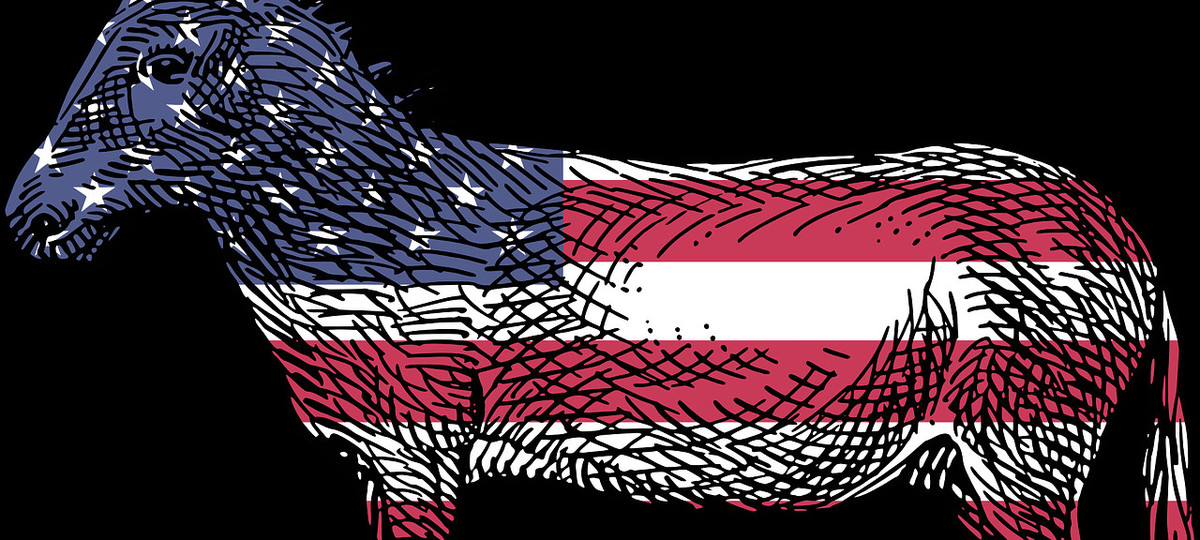
WINCHESTER, Va. — If Mudcat Saunders were running things, he would never have approached bringing his beloved Democratic Party together by uninviting one faction of the divided party.
"Well, that would not have been my tactics, if your party is divided, well how do you bring it together if you don't invite all sides?" he asks, confounded by the decision.
But that is exactly what they did to Saunders, a legendary Democratic operative with a deep Southern drawl, a commanding presence and a fierce loyalty to his party, despite its sharp turn left beginning along the fringes with Al Gore.
Saunders is the Democrats' outspoken liaison between progressive candidates and rural voters in order to help them soften their message to longtime Democratic voters who still like God and guns and find themselves in a church pew every Sunday. He was unceremoniously uninvited to the very event that was supposed to bring rural and progressive Democrats together ahead of the governors races this year.
He said: "Like I said, not exactly the way I would have approached it. I think every voice needs to be heard, we are losing rural Democrat support and I think we really need that for this governor's race in order to win."
In short, Democrats believe that because of their populous numbers in the urban suburbs in Northern Virginia, they don't need rural voters. And they aren't showing any willingness to petition, engage with them or win them over.
Their beef with him involves his unwillingness to vote for Hillary Clinton last year. It doesn't help that he was pretty outspoken about it.
"They don't have to. And this is why we are the minority party," said Dane Strother, a Washington, D.C.-based Democratic strategist with deep Southern roots. "If we remain uninterested in the rural vote we will remain the minority party."
Virginia Democrats are in the midst of a civil war that is only getting worse since the election of Donald J. Trump. Virginia did not go for Trump, but its rural voters, a decent amount of them Democrats, voted decisively for Trump over their party's nominee.
That civil war has escalated as the Democratic primary race for governor moves front and center. Candidates Ralph Northam, an Eastern Shore native, and Tom Perriello, who once represented the 5th Congressional District, both come from rural Virginia.
Mudcat supports Northam. He said: "Perriello used to be pro-life, now he's not. Perriello used to be pro-gun, now he is not. He is running away from the moderate Democrats and right into the arms of the left of the party and it's disappointing."
Earlier this month, Sen. Bernie Sanders, the de facto leader of the Democratic Party's progressive wing since he effectively harnessed energy among the party's far left during last year's primary contest with Clinton, endorsed the former congressman in the governors race.
The former Blue Dog-like Democrat came into the House majority one cycle after the wave of moderate Democrats swept Republicans into the minority.
Northam is the current lieutenant governor of Virginia, a position elected separately from the governor's office. He is moderate and populist and liked by the state's Democratic Party. He also voted for George W. Bush for president — twice.
One of these guys will soon be the Democratic nominee for governor in Virginia, said Strother: "It is one of only two states, New Jersey is the other, that hold governors' races this year, I think this contest in a purple state will show us the direction my party is going. Will they go full progressive? Will they include blue-collar and working class rural Democrats in a message that they can rally around? I sure hope so, or we are in a world of hurt."
Strother said the decision in Roanoke to disinvite Mudcat was a "stupid" one: "This is a defining race for us. We have to have a developed, authentic message that reaches these voters and stop alienating them or we will remain in the wilderness."
Here in the Shenandoah Valley, those exact types of voters are turned off by progressive politics and the state, despite going blue three presidential elections in a row. Those numbers for Democrats have softened in those cycles, not hardened.
The story to watch first is: Where do Democrats go in their primary race this summer? Do they continue to push out moderate voices like Mudcat? Do they find a way to bring them in with a message that appeals to all? Or do they march leftward? And, if so, does that march keep them in the wilderness, or do they find victory in the fall?
It is certainly the race to watch. Why? Well, because the Democrats need the Mudcats of this world in their party — not just here but across the country — and they need to let them have a voice. If not, they risk remaining the minority party up and down the ballot.
Previously:
• 04/11/17: This Is What Democracy Looks Like This Is What Democracy Looks Like
• 04/04/17: This Is What Democracy Looks Like
Salena Zito is a CNN political analyst, and a staff reporter and columnist for the Washington Examiner. She reaches the Everyman and Everywoman through shoe-leather journalism, traveling from Main Street to the beltway and all places in between.


 Contact The Editor
Contact The Editor
 Articles By This Author
Articles By This Author